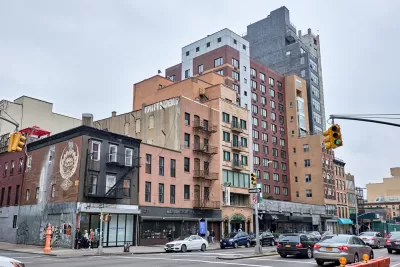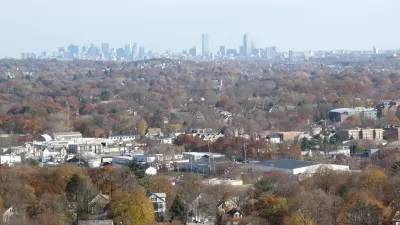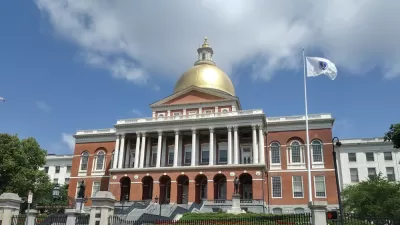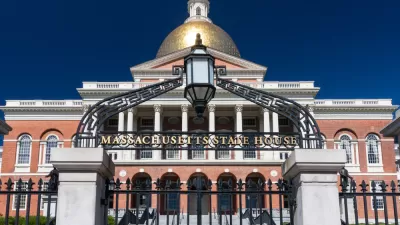Far from an obscure, wonky local issue, zoning reform has the potential to advance social justice in American cities.

The recent focus on the effects of exclusionary zoning is a crucial part of reforming housing policy and addressing discrimination and racism in housing and land use in the United States, writes Richard D. Kahlenberg in the New York Times. "Although zoning may seem like a technical, bureaucratic and decidedly local question, in reality the issue relates directly to three grand themes that Joe Biden ran on in the 2020 campaign: racial justice, respect for working-class people and national unity." Eliminating "economically discriminatory zoning policies," argues Kahlenberg, is a crucial step toward advancing those campaign goals.
"Removing exclusionary barriers that keep millions of Black and Hispanic people out of safe neighborhoods with strong schools is central to the goal of advancing racial justice." Despite a Supreme Court decision that struck down racial zoning in 1917, new policies like single-family zoning and redlining soon took its place, effectively creating the same barriers for families of color. "Racial discrimination has created an enormous wealth gap between white and Black people, and single-family-only zoning perpetuates that inequality." In fact, "the most restrictive zoning is found in politically liberal cities, where racial views are more progressive," relying on mechanisms that separate households by income and class to keep neighborhoods segregated. "Class discrimination helps explain why, despite a 25 percent decline in Black-white residential segregation since 1970, income segregation has more than doubled."
Reforming zoning, writes Kahlenberg, is necessary for achieving racial and economic justice. "After decades of federal inaction on this issue, Congress must move boldly to embrace the country’s anti-racist and anti-elitist mood to remove state-sponsored barriers that divide the nation’s people."
FULL STORY: If You Care About Social Justice, You Have to Care About Zoning

Maui's Vacation Rental Debate Turns Ugly
Verbal attacks, misinformation campaigns and fistfights plague a high-stakes debate to convert thousands of vacation rentals into long-term housing.

Planetizen Federal Action Tracker
A weekly monitor of how Trump’s orders and actions are impacting planners and planning in America.

San Francisco Suspends Traffic Calming Amidst Record Deaths
Citing “a challenging fiscal landscape,” the city will cease the program on the heels of 42 traffic deaths, including 24 pedestrians.

Defunct Pittsburgh Power Plant to Become Residential Tower
A decommissioned steam heat plant will be redeveloped into almost 100 affordable housing units.

Trump Prompts Restructuring of Transportation Research Board in “Unprecedented Overreach”
The TRB has eliminated more than half of its committees including those focused on climate, equity, and cities.

Amtrak Rolls Out New Orleans to Alabama “Mardi Gras” Train
The new service will operate morning and evening departures between Mobile and New Orleans.
Urban Design for Planners 1: Software Tools
This six-course series explores essential urban design concepts using open source software and equips planners with the tools they need to participate fully in the urban design process.
Planning for Universal Design
Learn the tools for implementing Universal Design in planning regulations.
Heyer Gruel & Associates PA
JM Goldson LLC
Custer County Colorado
City of Camden Redevelopment Agency
City of Astoria
Transportation Research & Education Center (TREC) at Portland State University
Jefferson Parish Government
Camden Redevelopment Agency
City of Claremont





























